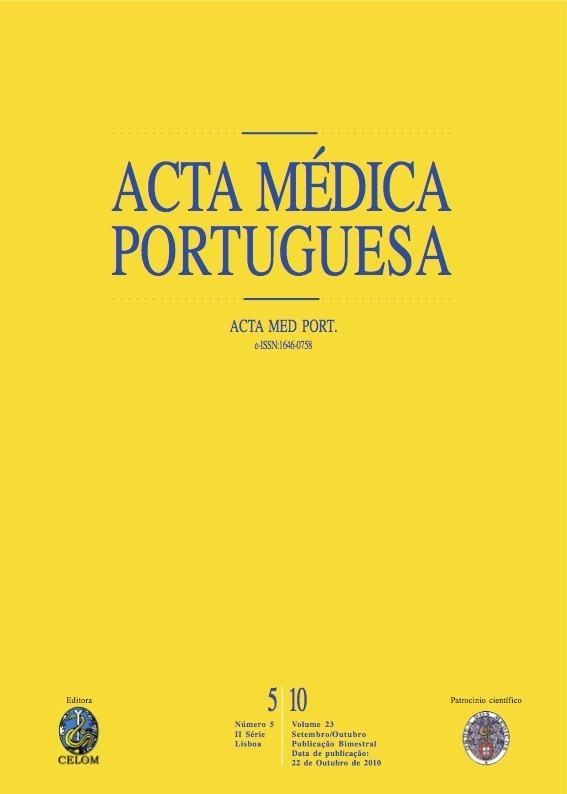Patient's relationship with the medical prescription - an observational study in urban populations in the ambulatory setting of General Practice/Family Medicine in the centre of Portugal.
DOI:
https://doi.org/10.20344/amp.729Abstract
The vast majority of General Practice/Family Medicine appointments end with a pharmacological prescription. It is therefore important to study the expectations facing the reasons to treat and the value attributed to the prescribed medicines, by patients.To know the expectations of patients facing the decision to treat and the therapeutic value attributed to prescribed medicines, by gender, academic grading, profession and age groups.In an observational study using a validated questionnaire, a non probabilistic convenience population representing, by gender and age groups, the universe of the urban attendants of a Primary Care facility in central Portugal, was studied. The questionnaire was applied, after informed consent, in an interview with a psychologist, for anonymous self-fulfillment. Descriptive and inferential statistics were performed.A population of 180 individuals was studied, mean age 47,3 ± 17,0 years (ns by gender) median 45 years, mode 29, being 85 males (47,2%). No differences were found by gender, profession and age groups. There is a clear preference for the treatment of the diseases the doctor has diagnosed. A frequency of 2,8% would prefer to define the medical prescription. Patients think that prescribed medicines aim to increase health (79,5%) and to treat the diagnosed diseases (67,6%). Older and non actives agree that prescribed medicines are targeted to the problems they presented, while younger ones medicines are targeted for their diseases. For the active ones prescribed medicines are to improve health.Patient's expectations about the decision of treating are technically oriented and medicines are thought of as a tool for healing and also as a mean to increase health. These two perspectives urge general practitioners/family doctors to make good patients medicines information and to define therapeutical objectives with patients.The knowledge of the patients' expectation on pharmacological therapy can help increase its results, once patients wish to be treated of the diseases doctors diagnose and think that medicines cure diseases and increase health.Downloads
Downloads
How to Cite
Issue
Section
License
All the articles published in the AMP are open access and comply with the requirements of funding agencies or academic institutions. The AMP is governed by the terms of the Creative Commons ‘Attribution – Non-Commercial Use - (CC-BY-NC)’ license, regarding the use by third parties.
It is the author’s responsibility to obtain approval for the reproduction of figures, tables, etc. from other publications.
Upon acceptance of an article for publication, the authors will be asked to complete the ICMJE “Copyright Liability and Copyright Sharing Statement “(http://www.actamedicaportuguesa.com/info/AMP-NormasPublicacao.pdf) and the “Declaration of Potential Conflicts of Interest” (http:// www.icmje.org/conflicts-of-interest). An e-mail will be sent to the corresponding author to acknowledge receipt of the manuscript.
After publication, the authors are authorised to make their articles available in repositories of their institutions of origin, as long as they always mention where they were published and according to the Creative Commons license.









